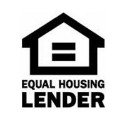Google 5-Star Rated Direct Hard Money Lender
Lien
Liens are a vital part of the hard money loan process. These legal claims act as an insurance policy for hard money lenders. In the event that a buyer defaults on their loan, the lien allows the lender to take necessary steps to recoup their funds.
What Is a Lien?
A lien is a legal claim against a piece of property that secures a loan. The lien gives the lender the right to take ownership of the property if the terms of the loan are not satisfied. Essentially, liens help lenders guarantee their loans will be repaid—either through scheduled payments or by taking possession of the property.
How Does a Lien Relate to Hard Money Loans?
When a lender issues a hard money loan to a borrower, they place a lien on the borrower’s collateral property. This type of lien is known as a “voluntary” lien and is removed once the loan is repaid in full. If the borrower defaults on their loan, the lien enables the lender to take full ownership of the property, a process known as foreclosure.
How a Lien Works
When you sign your hard money loan, you can expect the following lien process:
Step 1: Lien placed
When you sign your loan agreement, you allow your lender to place a lien on your collateral property.
Step 2: Lien recorded
Next, your lender will make a public record of the lien by recording it with your local county recorder’s office.
Step 3: Funds dispersed
Once the lien is in place, you’ll receive your funding.
Step 4: Loan is repaid
As soon as your loan is fully repaid, your lender will remove your lien from the public record
Step 5: Default
If you default on your loan, your lender is legally allowed to put your property into foreclosure and retain ownership of your property. They can now sell your property to recoup their funds.
Real‑World Scenarios
Review these real-world scenarios to see hard money liens in action.
Bridge Loan Lien
A homeowner takes out a bridge loan so they can buy a new apartment before they’ve sold their old one. Their lender places a lien on their old apartment and records the lien with their local county recorder’s office. The homeowner buys the new apartment and, several months later, sells the old apartment. They use the proceeds from the old apartment to pay off their loan and the lender removes the lien.
Second Mortgage Foreclosure
A commercial property owner wants to expand their portfolio by purchasing a new office building. To finance the purchase, they take out a second mortgage secured by an existing commercial property they already own, which already has a first-position loan and lien on it.
A hard money lender issues the second loan and places a second-position lien on the same collateral property.
Unfortunately, the property owner defaults on both the first and second loans. As a result, the property goes into foreclosure. In the foreclosure sale, the first-position lender is repaid first, then the second-position lender is paid from the remaining funds.
Lien FAQs
Can multiple liens exist on the same property?
Yes, multiple liens can exist on the same property. In most cases, this occurs when there are multiple loans or mortgages on a property. The lender who issues a loan first places a first-position lien on a property, and the next lender places a second-position lien.
What happens to liens during a foreclosure?
During foreclosure, the property is sold and the proceeds are used to repay the lender(s). When this happens, the first-position lender is repaid for their loan, interest, and fees first. If any funds remain, the second-position lender will be paid. If funds still remain, or if there is no second-position lender, the remaining funds go to the borrower.
In some cases, the proceeds of a foreclosure aren’t sufficient to fully repay both the first-position and second-position loans. For this reason, most second-position loans have substantially higher interest rates.
Does a lien affect my credit?
Voluntary liens like those involved in hard money loans don’t affect your credit as long as you pay your loan payments on time. If you miss payments or default on your loan, your credit score can be impacted.
Can I sell a property with a lien on it?
Yes, you can sell a property with a lien on it. In most cases, the lender with the lien on your property has first dibs on the proceeds of the sale. Once their loan is repaid, the rest of the proceeds are yours.
Related Terms

★★★★★

«




